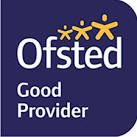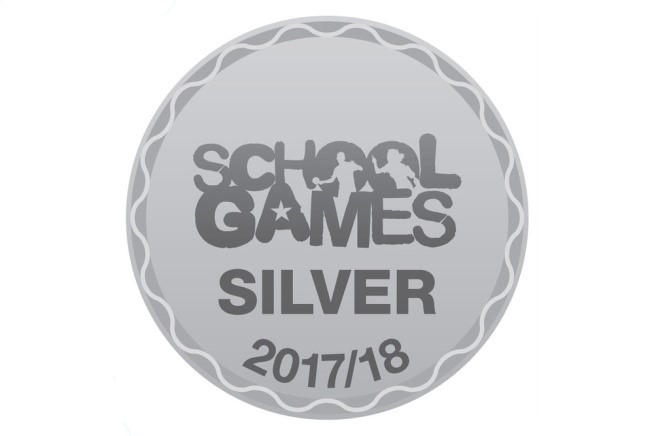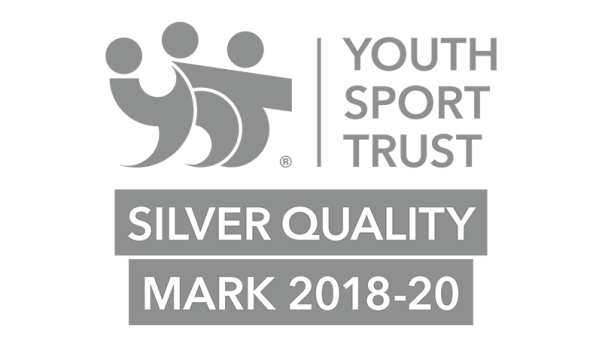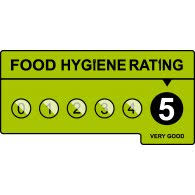Online Safety
Online safety is defined as educating people about the benefits, risks and responsibilities of using the internet and electronic devices.
Children are taught how to keep themselves safe online through a combination of lessons from their class teacher, assemblies and special themed days.
In particular, children are shown how to:
- Use technology safely, respectfully and responsibly.
- Recognise acceptable/unacceptable behaviour online, such as cyberbullying.
- Keep passwords and personal information safe.
- Report when they feel unsafe.
- Understand their online presence and how to be in control of their own privacy.
Children are responsible for:
- Using the school system in accordance with the pupil Acceptable Use Policy (AUP) Agreement
- Reporting an abuse, cyberbullying, misuse or access to inappropriate materials.
- Understanding the importance of being safe online.
- Adopting good online safety practice when using digital technologies outside of school and understanding that the school E- Safety and Acceptable Use of ICT Systems policy covers their actions out of school, if related to school.
Cyberbullying
Cyberbullying is the use of cell phones, instant messaging, email, chat rooms or social networking sites such as Facebook and Twitter to harass, threaten or intimidate someone. This is sending or posting harmful or cruel text or images using the internet or other digital communication devices.
Cyberbullying is different from other forms of bullying, how it can affect pupils and how to respond to misuse.
We can help children develop self-awareness, empathy and effective decision-making by regularly asking these questions:
- Am I being kind and showing respect for others and myself?
- How would I feel if someone did the same thing to me, my family or to my best friend?
- What would a trusted adult, someone who is important in my life, think?
- Is this action in violation of any agreements, rules, school policies or laws?
- How would I feel if others found out it was me?
- How does this action reflect on me?
As a school, Earlsmead takes cyberbullying very seriously. We train all our staff to recognise what cyberbullying looks like and how to respond to it, we educate our children about the risks involved and deal with, and monitor, all instances of cyberbullying should it arise.
Artificial Intelligence (AI)
AI refers to technology that can make computers learn and have human-like intelligence. A machine can be programmed to perform human-like tasks, based on the information it takes from it's surroundings and previous experiences.
Monitoring and Supervision
Adult Supervision: Any AI-based technology, particularly tools such as smart glasses or video systems, should be monitored by teachers or other responsible adults to ensure appropriate and safe use. However, reliance on digital supervision may inadvertently discourage students from developing critical problem-solving skills, as they may come to depend on technology for guidance rather than engaging with content independently.
Classroom Integration: AI tools can be integrated into structured, teacher-guided activities, ensuring that they complement learning rather than distract from it. Nonetheless, when overused, there is a risk that these tools may undermine essential face-to-face interactions and traditional teaching methods.
Everything posted online is public – it can be copied and redistributed – think before you post.
The Department for Education has released a document that aims to help parents better understand the issues and offers advice about many aspects. You can download it by clicking below:
Filtering & Monitoring
What is filtering and monitoring?
Filtering systems block access to harmful websites and content.
Monitoring systems:
- Identify when someone searches for or accesses certain types of harmful online content on school devices.
- Identify who is searching for or accessing the harmful content.
- Alert the school about it so we can intervene and respond.
We’re all responsible for filtering and monitoring.
You can help to make sure the internet is used appropriately by monitoring what your children are accessing on devices at home (e.g. by looking at their screens when using devices and checking search history regularly).
So what systems do we use?
Keeping Children Safe in Education 2023 states that all schools should have appropriate filtering and monitoring systems in place.
- Earlsmead works with CTS, LGfL, LA, DfE, Smoothwall and the Internet Service Provider to ensure systems to protect pupils are regularly reviewed and improved.
- The school’s broadband access includes filtering appropriate to the age and maturity of pupils. Our online safety lead (Miss Peshawaria) and IT support (CTS) ensure that regular checks are made to ensure that the filtering methods selected are appropriate and effective.
- Emerging technologies are examined for educational benefit and the Headteacher, in consultation with staff, gives permission for use.
- Access to images are restricted by integrated safe search tools (controlled by Smoothwall) within the search engine.
Resources
We understand that it can be overwhelming to keep up-to-date with new technologies, so we highly recommend using the resources below to keep your children safe online. We have parent workshops on keeping your children safe online over the course of the school year. Please speak to the office if you would like to know more information.
This video from Internet Matters explains how to apply parental restrictions at home.
This wizard from Internet Matters guides you through the process of applying parental restrictions at home to many different types of devices, from mobile phones and tablets, to broadband routers and apps.
Net Aware from the NSPCC is a website that lists many apps that children use. It explains their risks and how you can keep children safe if they’re using them. Click here to view the website.
Safer Internet Centre has a plethora of resources to guide parents and carers regarding keeping safe online.
The following links take you to excellent websites to give parents and children good advice about online safety:
KS1 - https://www.thinkuknow.co.uk/4_7/
KS2 - https://www.thinkuknow.co.uk/8_10/
Worried about YouTube?
Many parents have worries about their children using YouTube at home. We also share these anxieties and so we’ve looked into some possible options to help you. The best way to ensure your children are safe online is to encourage them to use their devices within shared family areas and to openly talk to them about the dangers.
The simplest option (for tablets and phones) — YouTube Kids.
Simply install the app on your children’s devices and remove the adult-version of YouTube. Your children will only be able to access specially selected content for their age group. The adverts are also suited towards children.
See more information about YouTube Kids at https://www.commonsensemedia.org/app-reviews/youtube-kids.
Setting up parental controls on YouTube (for laptops and computers): This involves signing into YouTube and setting up parental restrictions. You can then see what your children are looking at. There are more instructions on how to do this at https://www.internetmatters.org/controls/interactive-guide/YouTube/
Finally, some Simple rules to keep your child safe online
To keep your child safe they should:
- Set screen time limits and switch off times.
- Ask permission before using the internet and tell you what they are doing.
- Only use devices in family spaces, not in bedrooms.
- Only use websites and games (age appropriate) you have chosen together or a child-friendly search engine.
- Only message people they know.
- Do not use their real name when using games on the internet (create a nick-name).
- Never give out a home address, phone or mobile number.
- Never tell someone where they go to school.
- Never arrange to meet someone they have ‘met’ on the internet.
- Only use a webcam with people they know.
- Ask them to tell you immediately if they see anything they are unhappy with.
Go through the rules with your child.
Regularly check the internet sites your child is visiting e.g. by clicking on History and Favourites.
Reassure your child that you want to keep them safe rather than take internet access away from them.









